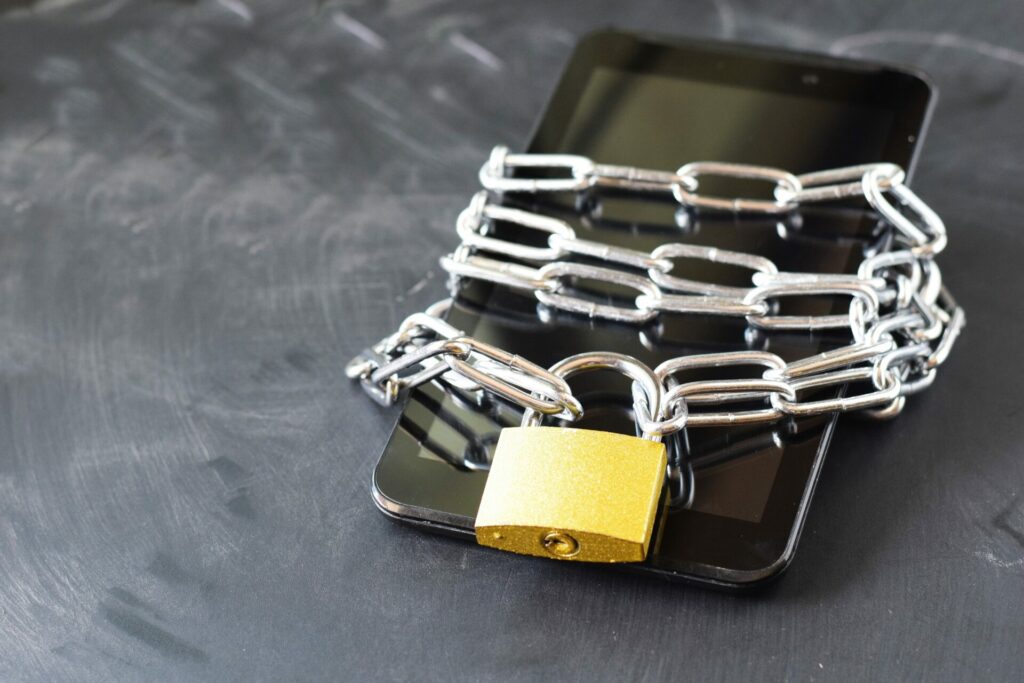I expected many things from a two-week digital detox: inconvenience, more time to concentrate on tasks and social isolation. But one thing I didn’t expect was that I’d miss my mum.
I live in the UK and so did she until recently when she moved to Australia. Now we keep in touch via social media and although we don’t speak every day, the knowledge that she is just a click away is reassuring. Without Facetime however, for all I know she could have been eaten by crocodiles.
Until now, I’d taken for granted just how small the world has become in the digital age. We’re all connected via technology and for separated families like mine, a video-call and instant messaging is free and easy. Before the advent of Zoom, Teams, WhatsApp, Facebook Live and Google Hangouts, contact with emigres like my mum would have involved postcards, letters and, more often than not, prearranged expensive weekly telephone calls.


Now without social media on a digital detox, Netflix, Amazon, Kindle or Google, I faced a fortnight of ignorance.
Memory Wipe-Out
On the first day of my self-enforced black-out I met friends for a coffee. Conversation turned to movies; specifically films we’d enjoyed when we were teenagers. Usually this type of social exchange is prime Google territory. Thanks to smartphones and search engines, the answer to every bit if trivia is at our fingertips. Physical memory is fast becoming redundant because we no longer need to retain facts. And I realised just how much when I struggled to remember the name of the movie which starred Christian Slater as a teenage pirate radio shock jock. While I racked my brain, my mates Googled it and announced it was Pump up the Volume. This digital detox is making me look dumb.
My first real challenge however, was organising a trip to Spain for a long weekend. Usually, I book flights online and store my tickets and boarding pass in my phone’s wallet. This time I had to get old school. But without the airline easyJet’s telephone number or access to Google I was stuck – and so did what any self-respecting Who Wants To Be A Millionaire contestant does in times of need and phoned a friend, who looked online for me and gave the customer service number.
The call to easyJet went like this:
Me: ‘Hello, I’d like to book a ticket but I don’t have access to a computer. What do I do?’
easyJet: ‘That’s no problem, Sir. You can book through our app on your phone.’
Me: ‘I can’t use the app on my phone.’
easyJet: ‘What kind of phone is it, Sir?’
Me (lying): ‘It’s a really old Nokia.’
easyJet: ‘Not a problem, Sir. You can book tickets through our call centre.’
Me: ‘I don’t have a printer either. Or email.’
easyJet: ‘That’s fine, Sir. Go to the check-in desk two hours before your flight and they will print your boarding pass out for you.’
The Digital Detox Challenge
Over the next half an hour I learnt my first digital detox lesson. We might pay lots for our shiny devices, but they save us money in the long run. Booking tickets over the phone cost around 18Euros more per passenger and, I was warned in a recorded message, I will be charged extra for any subsequent changes that I make to my booking over the telephone that can be made online.
The system worked, however, and I arrived at the airport earlier than usual to get my boarding pass printed. But although I was only taking hand luggage, I had to queue with people checking bags into the hold. Once through security I had extra time to kill though which allowed me a blast of nostalgia.
Before the advent of Kindle and Amazon, one of my favourite ways to spend time was to browse through bookshops. Now I spent a happy 30 minutes browsing WHSmith at London Gatwick airport and left holding a real, tangible book. It felt good.
Prior to the trip, I had the presence of mind to phone the hotel we were staying at and ask for directions to use in the car we’d hired. As Google Maps was banned on a digital detox, I only had a piece of paper with notes scribbled on it. The main autoroutes were easy to follow but when we hit the side roads I got lost. We had to ask locals. I don’t speak Spanish and was unable to use Google Translate, so instead a kindly Spanish gentleman explained very slowly in faltering English and drew a map for me. And eventually, with me peering at his squiggles, we arrived.
Digital devices encourage superficial reading where we flic between tasks and content. The result, studies have shown, is that human attention spans are becoming shorter
I didn’t need my phone to relax by the pool, or go sightseeing. And without any digital distractions over the weekend, I finished the book – Sapiens by Yuval Noah Harari, which at 466 pages was no mean feat. I felt a sense of achievement as usually I get distracted when reading on my iPad and tap open other apps.
How to do a Digital Detox
Neuroscience tells us that reading is an art. Deep reading is the active process of thoughtful and deliberate reading carried out to enhance comprehension and enjoyment of a text. When a reader becomes immersed in a book and focusses on the words in the page, pathways are built in the brain that help concentration and comprehension.

Digital devices, on the other hand, encourage superficial reading where the user flicks between tasks and content. The result, studies have shown, is that human attention spans are becoming shorter. Nicholas Carr, author of The Shallows: What the Internet is Doing to Our Brains believes our use of technology is affecting our ability to think, reflect and understand.
Back home after the break, I noticed one glaring problem with my digital detox experiment. As a journalist, I have to write articles on a range of different subjects. In any one week I could be tackling UK government anti-extremism policy, the health benefits of peanut butter and David Beckham’s latest tattoo.
News feeds from Twitter and Facebook create echo chambers – users subscribe and follow profiles and pages that reflect their own views and interests, resulting in a narrow world view. Turning these off was liberating
As a freelance, I also have to generate my own ideas and content which requires a lot of research – mainly online. Instead I have to buy every national newspaper each day and start skimming through them.
The news agenda moves by the hour in the modern world, and so while it was a pleasant way to start the day, I knew that the stories I was reading were already out of date. I did, however, feel more informed. Newspapers do analysis and comment much better than online platforms and they are also more trusted and professional in their newsgathering.
I had to bend the rules and allow myself a phone and internet access for work purposes only. But that was all I was allowed. There was still a complete ban on social media – which changed my entire day.
Without the distraction of Twitter, which I habitually check every two hours, I focused more and did more work.
I’d panicked that without Twitter I’d miss something and nervously worried that a reliance on newspapers would put me at a disadvantage, but in truth, I probably had a better insight into the world by reading reputable, fact-checked media than I did when I relied on Twitter, which I now realised was generally inane chatter.
News feeds from Twitter and Facebook create echo chambers. Users generally subscribe to feeds and follow profiles and pages that reflect their own views and interests, resulting in a narrow world view. Turning these off was liberating.
I also realised that I’d been scrolling through Facebook out of habit even though I rarely post. In past generations, people would leave school, get jobs, move, emigrate and would naturally keep in contact with some people, and lose contact with others. Social lives had a natural ebb and flow as life progressed and circumstances changed. Social media reinvented that.
Cyber Friends
Most of the people we lose physical touch with now remain connected to us in a superficial cyber ‘friend’ status which, I started to realise, is meaningless.
My life was none the poorer for not knowing what Paul Roach – who I worked with 30 years ago and haven’t spoken to for, er, 30 years – was eating for dinner. I’m sure he felt the same.
Life is about change, meeting new people and moving on. Social media stops that and allows people to live in the past when they might be better off looking forward.
As week two of the digital detox rolled on I did start to miss music. I’m possibly one of the last people on Earth who still buys albums from iTunes, but also use Amazon Music. I store music on my phone which connects to a Sonos system at home and to the car via Bluetooth. I like to think of myself as ‘Chairman of Music’ in the home and usually play my choices. I discovered that two weeks is a long time without Radiohead, Harry Styles or The 1975, although I suspect everyone else was glad of the break.
I also missed instant access to TV and movies, which surprised me as I’m not really a fan of the small screen. I sometimes catch a film on Netflix, Amazon or Apple TV, and occasionally binge on a box set. I didn’t think I’d miss any of these because I don’t rely on them but I’d obviously taken their convenience for granted. I read another book and went for a walk instead.

And so back to my mother. Having not spoken for almost two weeks, I sat down for the first time since I was a teenager to write a postcard. I got halfway through before I realised the exercise was futile. I’d be connected again long before the correspondence made it half way round the world.
Benefits of a Digital Detox
I survived the two weeks digital detox unscathed. My work did not suffer, although without internet access I wouldn’t have been able to work. But this was the only vital part of my digital puzzle and there were plenty of digital detox benefits.
When I logged back in to Facebook and Twitter, the same people were there saying the same things. If anything, a fortnight’s break had been enriching. I’d worked better, I was more present with my family.
I missed my mum, music, and movies but I gained perspective, read two books and spent more time outdoors. Part of me was sad when the digital chatter started up again.









